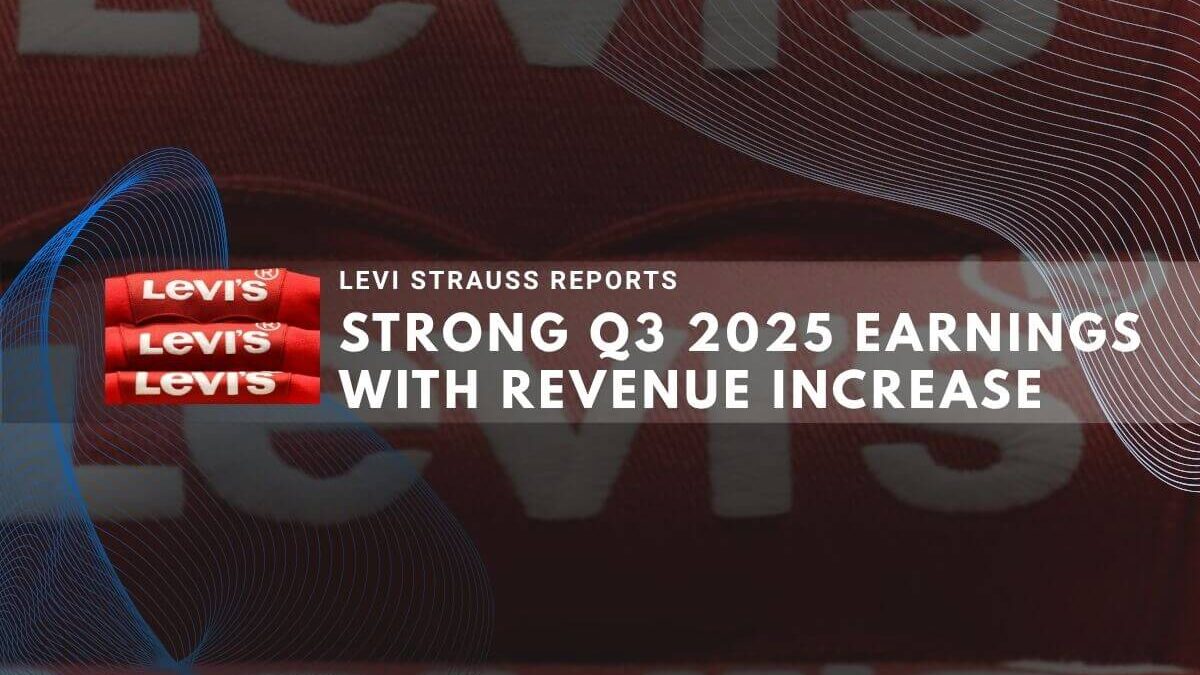Levi Strauss & Co. exceeded Wall Street expectations in its fiscal third quarter ending August 31, 2025, driven by targeted price increases, reduced discounting, and growth in direct-to-consumer (DTC) sales across markets.
Financial Levi Strauss Performance Highlights
- Revenue: $1.54 billion, up 7% from $1.44 billion a year earlier, surpassing the $1.50 billion analyst estimate.[1][2][3][4]
- Gross Margin: Improved by 1.1 percentage points to 61.7% versus 60.6% in Q3 2024, beating the expected 60.7%.[5][1]
- Adjusted Earnings Per Share (EPS): 34 cents, higher than the 31 cents forecast.[4][1]
- Net Income: $218 million or 55 cents per share, compared with $20.7 million or 5 cents a year ago.[1]
- Operating Margin: Enhanced to approximately 10.8%, up from 2.3% in the previous year, supported by DTC growth and full-price sales.[2][5]
Strategic Initiatives and Market Segments
- Levi’s CEO Michelle Gass highlighted a “surgical” price increase strategy with no significant impact on demand, protecting brand value through quality and value perception.[6][1]
- The company reduced discounting and shifted more sales through its own stores and e-commerce, which have higher margins compared to wholesalers.[3][5][1]
- Direct-to-consumer sales grew 11% in Q3, primarily driven by U.S. strength.[5][4][1]
- Women’s apparel sales rose by 9%, benefiting from Levi’s expansion beyond denim jeans into tops and other apparel, which now account for nearly 40% of sales.[1][5]
- International sales contributed robustly, with Asia up 12% and Europe up 5%, cushioning the impact of tariffs.[7][2]
Outlook and Guidance
- Levi Strauss raised its 2025 full-year sales growth forecast to around 3%, above the prior 1-2% range, still exceeding broader industry expectations.[8][9][2]
- Adjusted EPS guidance was increased to $1.27 to $1.32, aligning with analysts’ estimates.[2][8]
- The company expects operating margins between 11.4% and 11.6% and gross margin to increase by 1 percentage point, assuming stable U.S. tariffs of 30% on Chinese imports and 20% on others for the rest of the year.[9][8][2]
- Levi Strauss’s CEO noted the company’s strong positioning due to international diversification (60% of business outside the U.S.) and efficient supply chain partnerships mitigating tariff impacts.[7][6]
Market Reaction
- Despite strong quarterly performance and raised guidance, Levi Strauss shares fell about 6-7% in after-hours trading, following a 42% gain earlier this year.[10][8][2][1]
Management Commentary
- CEO Michelle Gass emphasized the brand’s focus on quality, value, and sustained consumer demand amid pricing adjustments.
- CFO Harmit Singh noted that revenue growth is largely volume-driven, with less dependency on price hikes, reflecting a robust demand environment.[11][1]
